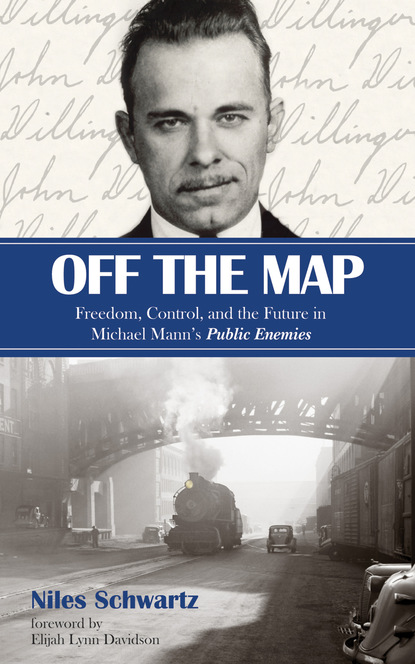
Off the Map скачать fb2
Niles Schwartz - Off the Map краткое содержание
A motion picture chronicling the last adventures of bank robber John Dillinger (Johnny Depp), Public Enemies was met with much bafflement upon its 2009 release. Director Michael Mann's terse storytelling and unorthodox use of high-definition digital cameras challenged viewers' familiarity with Hollywood's historical gangland elegance while highlighting Public Enemies' own place in a medium–and culture–undergoing sweeping technological change. In Off the Map, Niles Schwartz immerses us in Mann's representation of Dillinger, a subject increasingly aware of his own role as a romanticized frontier folk hero, in flight from an enveloping bureaucratic system. The cultural issues of Dillinger's 1930s anticipate the 21st century watershed moment for the moving image, as our relationship with the pictures surrounding us increasingly affects our own sense of identity, historical truth, and means of relating to each other. Mann's follow-up, the hacker thriller Blackhat (2015), reflects a world where Public Enemies' abstract surveillance state has since colonized the firmament of our everyday lives. Yet in this virtual labyrinth of surplus images, cinema may inwardly illuminate a transformative path for us. Off the Map places Mann's late works in deep focus, exploring our present relationship to cinema on a backdrop that swings from the blockbuster spectacle of Avatar to the curious intimacy of Moonrise Kingdom, ultimately suggesting the mysterious space between the viewer and the screen may yet become a sanctuary of deep spiritual reflection.
Скачать книгу «Off the Map» Niles Schwartz
Чтобы оставить свою оценку и/или комментарий, Вам нужно войти под своей учетной записью или зарегистрироваться



